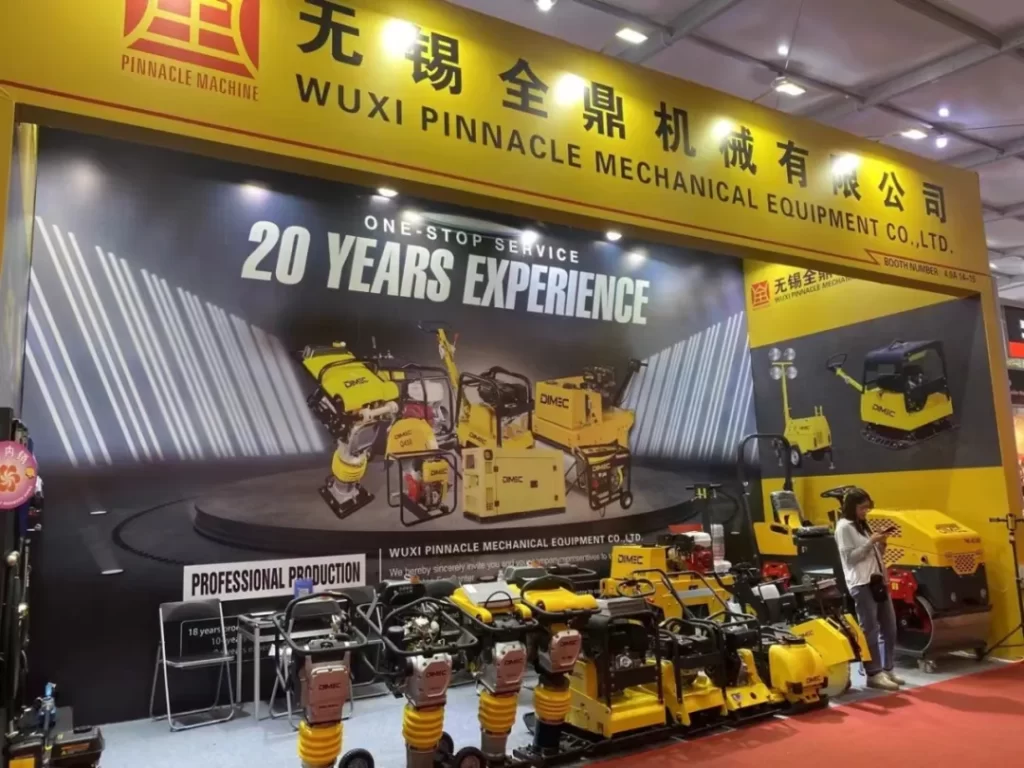The Ultimate Guide to Finding a Reliable Tamping Rammer Supplier
- DIMEC
- Tamping Rammer Supplier
Home » The Ultimate Guide to Finding a Reliable Tamping Rammer Supplier

Table of Contents
Introduction to Tamping Rammers
What Are Tamping Rammers?
Tamping rammers are essential pieces of equipment used in construction and landscaping to compact soil, sand, or gravel. Unlike traditional rollers, these machines apply direct vertical pressure through repeated impacts, ensuring optimal density and stability of the ground. Their compact design makes them indispensable for projects in confined spaces.
Key Applications of Tamping Rammers
Tamping rammers are widely utilized in:
Road Construction: Compaction of sub-base layers.
Trench Work: Ensuring stable support for utility pipes.
Landscaping: Preparing soil for paving or planting.
Building Foundations: Establishing a firm base for structures.
Importance of Choosing the Right Supplier
Impact on Project Quality
The reliability and efficiency of a tamping rammer directly influence the outcome of your project. High-quality equipment ensures:
Consistent Compaction: Preventing uneven surfaces.
Reduced Downtime: Fewer breakdowns mean uninterrupted work.
Cost Efficiency and Long-Term Benefits
Working with the right supplier offers significant cost savings through:
Access to durable equipment with minimal maintenance needs.
Opportunities for bulk purchase discounts.
Factors to Consider When Choosing a Tamping Rammer Supplier
Product Quality and Standards
Ensure the supplier adheres to international manufacturing standards like ISO 9001. High-quality rammers are built with robust materials, guaranteeing durability even under rigorous use.
Availability of Diverse Models
A reliable supplier should offer:
Lightweight and heavy-duty models.
Options with various engine types (gasoline, diesel, or electric).
After-Sales Support and Warranty
Check if the supplier provides:
Comprehensive warranties covering parts and labor.
Prompt customer support for technical issues.
Pricing and Bulk Discounts
Request detailed quotations to compare:
Unit costs versus bulk order discounts.
Hidden charges like shipping or taxes.
Top Qualities of a Reliable Tamping Rammer Supplier
Industry Reputation and Customer Reviews
Look for suppliers with:
Positive feedback from clients.
Strong presence in the construction equipment market.
Transparent Communication and Documentation
A trustworthy supplier provides clear information about:
Equipment specifications.
Payment terms and delivery schedules.
Timely Delivery and Logistics Support
Delays in equipment delivery can disrupt project timelines. Choose a supplier with efficient logistics systems.
Leading Brands in the Tamping Rammer Market
Overview of Popular Tamping Rammer Brands
Some top brands include:
Wacker Neuson
Multiquip
Mikasa
DIMEC
Comparing Features and Specifications
When selecting a brand, compare:
Engine power and fuel efficiency.
Ease of operation and maintenance.
How to Source Tamping Rammers Internationally
Understanding Export Regulations
Familiarize yourself with customs requirements and tariffs in your country to avoid unexpected costs.
Tips for Effective Supplier Negotiation
Negotiate terms like:
Delivery timeframes.
Discounts for repeat orders.
Sustainability in Tamping Rammers
Eco-Friendly Manufacturing Practices
Many manufacturers are adopting sustainable methods, such as using recyclable materials.
Reducing Carbon Footprint in Construction Equipment
Opt for models with energy-efficient engines to minimize emissions.
FAQs on Tamping Rammer Suppliers
What Should I Look for in a Supplier?
Focus on quality, reputation, and after-sales support.
How Do I Verify the Supplier’s Credibility?
Check certifications, customer reviews, and industry affiliations.
Are Bulk Discounts Available?
Many suppliers offer discounts for large orders. Request a custom quote.
What Are Common Warranty Terms?
Warranties typically range from 6 months to 2 years, covering key components.
Can Suppliers Provide Custom Solutions?
Some suppliers offer bespoke designs or modifications to meet specific project needs.
What Are the Latest Trends in Tamping Rammers?
Innovations include ergonomic designs, digital monitoring systems, and eco-friendly engines.
Conclusion
Choosing the right tamping rammer supplier is crucial for ensuring the success and efficiency of your construction projects. By prioritizing quality, reliability, and sustainability, you can achieve long-term benefits and contribute to eco-friendly practices.
You May Also Like